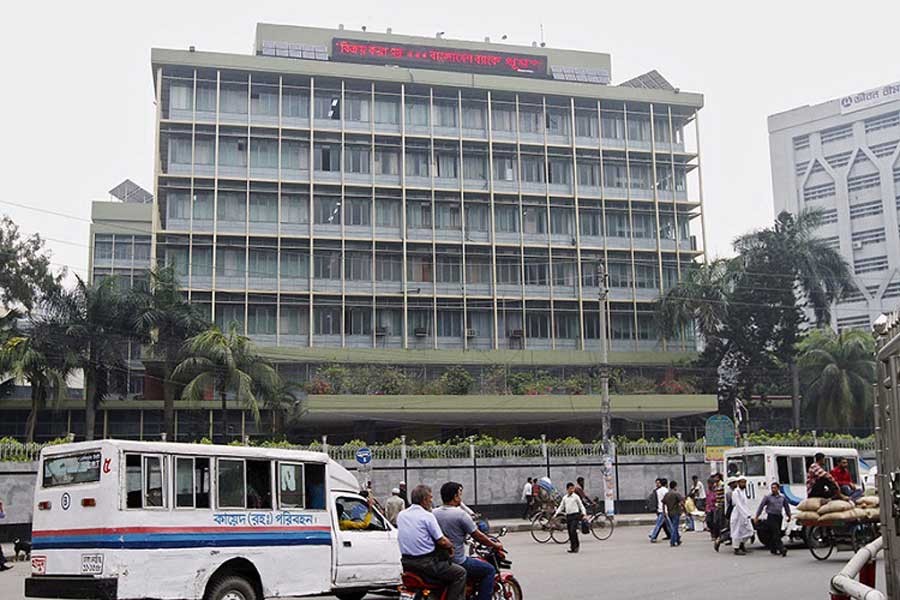BB starts impact study on offshore banking
Sees the operation unlikely to put extra compliance pressure

Published :
Updated :

Bangladesh Bank (BB) has started conducting a study on possible impact of the offshore banking unit (OBU) operations if such functions are brought under the Banking Companies Act (BAC), officials said.
Under a latest move, the central bank has already completed an impact study on the single borrower exposure limit of the foreign commercial banks (FCBs) operating in Bangladesh.
It found the limit, particularly for the funded facilities under the OBU operations of the FCBs, now remains below 15 per cent against the permissible limit of 25 per cent.
"We'll conduct such possible impact study on the other banks immediately," a senior official at the BB told the FE Sunday.
The central bank believes that the banks would not face extra pressure for complying with the single borrower exposure limit rule if the OBU operations come under the BAC, he added.
"We'll also look into the possible impact on CRR (cash reserve requirement), SLR (statutory liquidity ratio) and capital requirements under Basel-III framework after brining the OBU operations into the normal banking framework," he said.
Currently, 35 commercial banks out of 57 are running their OBUs across the country as per a directive issued by the Banking Control Department of BB on December 17, 1985.
Under the directive, the OBUs have been exempted from the purview of certain provisions of the Banking Companies Ordinance 1962 as per the government notification.
Besides, the OBUs will also be considered for exemption from Article 36(1) of the Bangladesh Bank Order 1972 on such terms and for such period as may be deemed fit by the government.
It means the OBUs are exempted for maintaining CRR and SLR with the central bank of Bangladesh against their liabilities.
The OBUs are free to accept deposits from outside Bangladesh and borrow from abroad. They are also free to make advances/investments abroad and make permissible transactions with industries in the export processing zones (EPZs).
The OBUs are allowed to provide foreign currency loans to their customers.
It also allowed carrying out transactions in specified foreign currencies. The suggested currencies are the US dollar, Great Britain pound, Canadian dollar, Deutsche mark, Japanese yen, Swiss franc, the Netherlands guilder, French franc, Swedish kroner and the Singaporean dollar.
Total outstanding loans with OBU of the banks reached Tk 419.72 billion as on March 31 from Tk 393.30 billion in the final quarter of the last calendar year. It was Tk 311.77 billion as on September 30, 2016.
"We're not empowered fully to monitor and supervise the OBU operations closely due to legal constraint," another BB official said.
As part of persuasion, the central bank now asks the banks having OBU operations to keep provision on such loans and collect information on assets and liabilities of each OBU on weekly basis for assessing their financial risks, if any, especially with transactions in terms of foreign currencies.
"We'll issue a fresh directive aiming to mitigate the risks of OBU operations in Bangladesh through strengthening monitoring and supervision after completing the study," the BB official said, replying to a question.
He said the central bank might set timeframes for the banks concerned to comply with the CRR, SLR and capital requirements so that they do not face any extra pressure to this effect.
The demand for foreign-currency loans from OBUs has been on a gradual increase after the opening up of private-sector credits, allowing the entrepreneurs to borrow from the overseas sources, according to bankers.
"The OBUs are now playing a significant role in the credit market following the higher demand for foreign loans, mainly due to lower interest rates on such lending," a senior executive of a leading private commercial bank said.
The BB should issue a guideline in this connection immediately and conduct audit to each OBU to assess their actual financial position, the private banker suggested.


 For all latest news, follow The Financial Express Google News channel.
For all latest news, follow The Financial Express Google News channel.